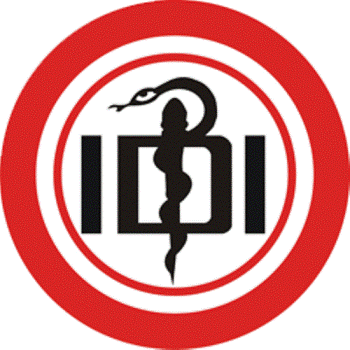--------------------------------------------------------------------------------
Original Article:http://www.nlm.nih.gov/medlineplus/postpartumdepression.html
--------------------------------------------------------------------------------
Postpartum depression
Introduction
The birth of a baby can trigger a jumble of powerful emotions, from excitement and joy to fear and anxiety. But it can also result in something you might not expect — depression.
Many new moms experience the baby blues — a mild, short-lived depression — for a few days or weeks after childbirth. According to the American College of Obstetricians and Gynecologists, about 10 percent of new moms experience postpartum depression — a more severe form of depression that can develop within the first six months after giving birth. For women with postpartum depression, feelings such as sadness, anxiety and restlessness can be so strong that they interfere with daily tasks. Rarely, a more extreme form of depression known as postpartum psychosis can develop.
Experiencing depression after childbirth isn't a character flaw or a weakness. Sometimes it's simply part of giving birth. If you're depressed, prompt treatment can help you manage your symptoms — and enjoy your baby.
Signs and symptoms
The signs and symptoms of depression after childbirth vary depending on the form of depression. Signs and symptoms of the baby blues — which last only a few days or weeks — may include:
Anxiety
Sadness
Irritability
Crying
Headaches
Exhaustion
A sense of inadequacy
Postpartum depression may appear to be the baby blues at first — but the signs and symptoms are more intense and longer lasting, eventually interfering with your ability to function. In addition to the signs and symptoms listed above, you may experience:
Constant fatigue
Lack of joy in life
A sense of emotional numbness or failure
Withdrawal from family and friends
Lack of concern for yourself or your baby
Excessive concern for your baby
Less interest in sex
Severe mood swings
Impaired thinking or concentration
Insomnia
With postpartum psychosis — a rare condition that develops within the first six weeks after delivery — the signs and symptoms are even more severe. In addition to the signs and symptoms listed above, you may experience:
Fear of harming yourself or your baby
Confusion and disorientation
Hallucinations and delusions
Paranoia
Causes
There's no single cause for depression after childbirth. Physical, emotional and lifestyle factors may all play a role.
Physical changes. After childbirth, a dramatic drop in estrogen and progesterone may trigger depression. The hormones produced by your thyroid gland also may drop sharply — which can leave you feeling tired, sluggish and depressed. Changes in your blood volume, blood pressure, immune system and metabolism can lead to fatigue and mood swings.
Emotional factors. When you're sleep deprived and overwhelmed, you may have trouble handling even minor problems. You may be anxious about your ability to care for a newborn. You may feel less attractive or struggle with your sense of identity. You may feel that you've lost control over your life. Any of these factors can contribute to depression.
Lifestyle influences. Many lifestyle factors can lead to depression, including a demanding baby or older siblings, difficulty breast-feeding, exhaustion, financial problems, and lack of support from your partner or other loved ones.
Risk factors
Postpartum depression can develop after the birth of any child — not just the first. In fact, postpartum depression is more common in second-time mothers.
The risk of postpartum depression increases if:
You have a history of depression, either during pregnancy or at other times
You had postpartum depression after a previous pregnancy
You have a history of severe premenstrual syndrome
You experienced stressful events during pregnancy, including illness, premature birth or a difficult delivery
You have a difficult marriage
The pregnancy is unplanned or unwanted
When to seek medical advice
If you're feeling depressed after your baby's birth, you may be reluctant or embarrassed to admit it. But it's important to tell your doctor. If the signs and symptoms of depression don't fade after a few weeks or if they're so severe that they interfere with your ability to complete everyday tasks, call your doctor. Early intervention can speed your recovery.
If you suspect that you're developing postpartum psychosis, seek medical attention immediately. Don't wait and hope for improvement. Postpartum psychosis may lead to life-threatening thoughts or behaviors.
Screening and diagnosis
To distinguish between a short-term case of the baby blues and a more severe form of depression, your doctor may ask you to complete a depression-screening questionnaire. Blood tests can help your doctor determine whether an underactive thyroid is contributing to your signs and symptoms.
Complications
Left untreated, postpartum depression can last for up to a year or longer — taking a toll on the entire family. Untreated postpartum depression can interfere with mother-child bonding and cause family distress. Children of mothers with untreated postpartum depression are more likely to have behavioral problems, including sleeping and eating difficulties, temper tantrums and hyperactivity. Delays in language development are common as well.
Treatment
Treatment and recovery time vary, depending on the severity of your depression and your individual needs.
Baby blues
The baby blues usually fade on their own within a few days to weeks. In the meantime, get as much rest as you can. Accept help from family and friends. Connect with other new moms. If you have an underactive thyroid, your doctor may prescribe thyroid medication.
Postpartum depression
Postpartum depression is often treated with counseling and medication.
Counseling. It may help to talk through your concerns with a psychiatrist, psychologist or other mental health professional. Through counseling, you can find better ways to cope with your feelings, solve problems and set realistic goals.
Antidepressants. Antidepressants are a proven treatment for postpartum depression. If you're breast-feeding, it's important to know that any medication you take will enter your breast milk. Some antidepressants can be used during breast-feeding with little risk to your baby. But several antidepressants raise concerns for the baby, and various others have not been adequately tested to fully assess the risk. Work with your doctor to weigh the potential risks and benefits as you choose the treatment that's right for you.
Hormone therapy. Estrogen replacement may help counteract the rapid drop in estrogen that accompanies childbirth. However, estrogen therapy after childbirth may decrease milk production and increase the risk of developing blood clots in the leg or lungs. As with antidepressants, weigh the potential risks and benefits of hormone therapy with your doctor.
With appropriate treatment, postpartum depression usually goes away within a few months. Some women have lingering symptoms for months or years.
Postpartum psychosis
Postpartum psychosis requires immediate treatment — often in the hospital. When your safety is assured, treatment may begin with antidepressants or hormone therapy. Other options may include:
Antipsychotic agents. These medications are typically used to treat psychotic disorders, such as schizophrenia. But they can also treat the psychosis that may accompany extreme cases of depression.
Lithium. This mood stabilizer — generally used to treat bipolar disorder — can help balance mood swings. It's not recommended for women who are breast-feeding, however.
Electroconvulsive therapy. This therapy applies a small amount of electrical current to your brain to produce brain waves similar to those that occur during a seizure. The chemical changes triggered by the electrical currents can reduce the symptoms of depression — especially when other treatments have failed or when you need immediate results.
Self-care
If you have postpartum depression, taking good care of yourself can help speed your recovery.
Make healthy lifestyle choices. Rest as much as you can. Exercise regularly. Try daily walks with your baby. Eat healthy foods — plenty of fruits, vegetables and whole grains. Avoid alcohol.
Set realistic expectations. Don't pressure yourself to do everything. Scale back your expectations for the perfect household. Do what you can and leave the rest. Ask for help when you need it.
Make time for yourself. If you feel like the world is coming down around you, take some time for yourself. Get dressed, leave the house and visit a friend or run an errand. Or schedule some time alone with your partner.
Avoid isolation. Talk with your partner, family and friends about how you're feeling. Ask other mothers about their experiences. Ask your doctor about local support groups for new moms or women with postpartum depression.
Remember, the best way to take care of your baby is to take care of yourself.
--------------------------------------------------------------------------------
By Mayo Clinic Staff
Jun 9, 2006
© 1998-2007 Mayo Foundation for Medical Education and Research (MFMER). All rights reserved. A single copy of these materials may be reprinted for noncommercial personal use only. "Mayo," "Mayo Clinic," "MayoClinic.com," "EmbodyHealth," "Reliable tools for healthier lives," "Enhance your life," and the triple-shield Mayo Clinic logo are trademarks of Mayo Foundation for Medical Education and Research.
DS00546
BLOG DOKTER SPESIALIS KEBIDANAN DAN PENYAKIT KANDUNGAN ( Obstetric's & Gynecologist Blog ) Sumatera Barat.,Indonesia
SAVE YOUR BABY'S, SAVE NEXT GENERATION'S
SAVE YOUR BABY'S, SAVE NEXT GENERATION'S
Search This Blog
- Universitas Andalas Website
- TRIGEMINAL NEURALGIA LECTURES AND TREATMENT
- Maternal and Child :Research and Article
- dr Firman. Abdullah SpOG/ OBGYN .Personal Edition
- dr Firman Abdullah SpOG / ObGyn.com
- Dr Djohanas Djohan Abdullah Memorial Hospital.com
- Bukittinggi International Hospital.com
- Aliansi Rakyat Anti Korupsi Bukitinggi.com
Jam Gadang.Bukittinggi. Sumatera Barat .Indonesia
24.jpg)

Bung Hatta statue ,Bukittinggi
About me.....
IKATAN DOKTER INDONESIA (IDI).Sumatera Barat

INDONESIAN MEDICAL ASSOCIATION
ASSALAMUALAIKUM........
dr Firman Abdullah SpOG / OBGYN
Peer - Review..Cyberounds
Blog Archive
-
►
2008
(1)
- ► March 2008 (1)
-
▼
2009
(387)
-
▼
April 2009
(87)
- CYTOMEGALOVIRUS ,CHILDREN'S HOSPITAL BOSTON
- CYTOMEGALOVIRUS INFECTION ; Mark R Schleiss, MD,
- PREGNANCY CDC cytomegalovirus
- CMV infection in pregnancy
- CDC urges doctor to combat birth-defect virus
- Cytomegalovirus-associated protein-losing gastropa...
- Cytomegalovirus myopericarditis and hepatitis in a...
- Congenital cytomegalovirus infection associated wi...
- Acute viral infections in patients with systemic l...
- Pulmonary embolism and portal vein thrombosis in a...
- Deep vein thrombosis and acute cytomegalovirus inf...
- Fetal ascites owing to congenital cytomegalovirus:...
- Cytomegalovirus-related fetal brain lesions: compa...
- Association between cytomegalovirus infection and ...
- Patient information: Avoiding infections in pregnancy
- Perinatal Cytomegalovirus and Toxoplasmosis: Chall...
- Late-onset CMV disease following CMV prophylaxis
- Congenital CMV infection in symptomatic infants in...
- Maternal-fetal cytomegalovirus infection: from dia...
- A case of acute pericarditis with hemophagocytic s...
- Abdominal aortic aneurysm and cytomegalovirus infe...
- Acute cytomegalovirus infection and venous thrombo...
- Acute urinary retention in a 7-year-old girl: an u...
- Acute viral infections in patients with systemic l...
- Association between cytomegalovirus infection and...
- CDG type Ia and congenital cytomegalovirus infecti...
- CMV-induced neonatal thrombocytopenia: a case repo...
- Congenital cytomegalovirus infection following pri...
- Congenital cytomegalovirus infections.
- Cytomegalovirus (CMV)
- Cytomegalovirus in Pregnancy: Primary versus Recur...
- Cytomegalovirus infection
- Cytomegalovirus infection common during pregnancy
- Cytomegalovirus infection in early infancy: risk o...
- Cytomegalovirus Infection ,Mark R Schleiss
- Cytomegalovirus pneumonitis in a patient with neph...
- Tetralogy of Fallot ,MAYO CLINIC
- Tetralogy of Fallot , MAYO CLINIC
- Wegener's granulomatosis complicated by intestinal...
- Autism in children with congenital rubella
- Follow-up report on autism in congenital rubella
- Surveillance of Measles-Mumps-Rubella Vaccine-Asso...
- Congenital rubella syndrome after maternal reinfec...
- What Causes Thrombocytopenia?
- Idiopathic Thrombocytopenia Purpura
- Neonatal Thrombocytopenia: Evaluation and Management
- Syndrome of Inappropriate Secretion of Antidiureti...
- Infertility ; Asherman's Syndrome (FAQ)
- ASHERMAN'S SYNDROME
- Infectious agents as disruptors of calcium homeost...
- Pregnant Women
- What Clinicians Need to Know About MMRV Vaccine Sa...
- ACOG Issues Guidance on Treatment of Morning Sickn...
- A Gonadotrophin-releasing Hormone Agonist compared...
- PCOS, Metformin and Insulin Resistance
- Retinal Vein Occlusion
- Obesity and infertility
- Vaginal Birth Not Associated With Incontinence Lat...
- ACOG Recommends Restricted Use of Episiotomies
- ACOG Calls on Ob-Gyns, Health Care Professionals, ...
- Hormonal treatments for adenomyosis
- Conserving Ovaries During Hysterectomy Benefits Lo...
- About your Exam - Ultrasound Safety
- Pregnancy and Work: Telling Your Boss
- Eating disorders and Pregnancy
- Depression After the Birth of a Child or Pregnancy...
- Periconceptional supplementation with folate and/o...
- Postpartum depression
- Vertical transmission of genital herpes: preventio...
- Impact of FDA advisory on reported vacuum-assisted...
- Vaccination During Pregnancy
- Do the emotional states of pregnant women affect n...
- Timing of Elective Repeat Cesarean Delivery at Ter...
- Early maternal feeding following caesarean deliver...
- Cesarean by choice? Empirical study of public atti...
- The delayed effects of congenital rubella syndrome
- Importance of an Eye Examination in Identifying th...
- RUBELLA: Viral Exanthems (Rashes)
- Birth defects
- Congenital Rubella Syndrome : Mental Retardation
- Childhood Vaccination May Protect Adult Eyes
- The delayed effects of congenital rubella syndrome
- Unilateral hearing loss due to rubella infection i...
- Vertical transmission of genital herpes: preventio...
- Vascular thrombosis and acute cytomegalovirus infe...
- Rubella
- Toxoplasmosis
- ► August 2009 (54)
- ► September 2009 (21)
- ► November 2009 (4)
- ► December 2009 (11)
-
▼
April 2009
(87)
-
►
2010
(45)
- ► January 2010 (6)
- ► February 2010 (11)
- ► March 2010 (1)
- ► April 2010 (7)
- ► November 2010 (2)
-
►
2011
(4)
- ► February 2011 (2)
- ► March 2011 (2)
FEEDJIT Live Traffic Feed
Discussion Board
FEEDJIT Live Traffic Map
FEEDJIT Recommended Reading
FEEDJIT Live Page Popularity
dr Firman Abdullah SpOG / OBGYN

Subscribe to:
Post Comments (Atom)
BMI CALCULATOR
ACHMAD MOCHTAR GENERAL HOSPITAL BUKITTINGGI

RUMAH SAKIT ACHMAD MOCHTAR BUKITTINGGI
Firman Abdullah Bung
drFirman Abdullah SpOG / ObGyn

KELUARGA BESAR TNI-AD
Dr Firman Abdullah SpOG/ OBGYN, Bukittinggi, Sumatera Barat ,Indonesia
Bukittinggi , Sumatera Barat , Indonesia

Balaikota Bukittinggi
dr Firman Abdullah SpOG / OBGYN

Ngarai Sianok ,Bukittinggi, Sumatera Barat.Indonesia

Brevet in Specialist Obstetric's & Gynecologist 1998

dr Firman Abdullah SpOG/ObGyn


Dokter Spesialis Kebidanan dan Penyakit Kandungan . ( Obstetric's and Gynaecologist ) . Jl.Bahder Johan no.227,Depan pasar pagi ,Tembok .Bukittinggi 26124 ,HP:0812 660 1614. West Sumatra,Indonesia
Sikuai Beach ,West Sumatra ,Indonesia


Fort de Kock, Bukittinggi






No comments:
Post a Comment